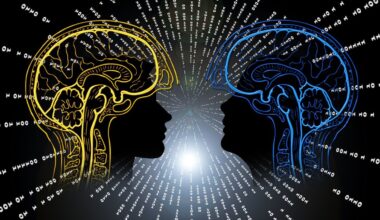In the realm of computing, a seismic shift is underway—the rise of quantum computing. This cutting-edge technology, harnessing the principles of quantum mechanics, promises to revolutionize computation, unlocking unprecedented power and capabilities beyond the confines of classical computing. Understanding the rise of quantum computing and its potential to reshape industries and scientific discoveries is pivotal in comprehending the quantum leap in technology.
Understanding Quantum Computing
Traditional computers, operating on bits of information represented as either 0 or 1, follow classical laws of physics. In contrast, quantum computers utilize quantum bits, or qubits, which leverage quantum phenomena such as superposition and entanglement. This quantum nature enables qubits to exist in multiple states simultaneously, vastly expanding computational possibilities.
Quantum Supremacy and the Power of Quantum Computers
Quantum supremacy marks the point at which a quantum computer outperforms the most powerful classical computers in solving a specific problem. Achieving this milestone signifies a pivotal moment in computing history, demonstrating the superior computational capabilities of quantum machines. Google’s demonstration of quantum supremacy in 2019 marked a significant milestone, showcasing the potential of quantum computing.
Unlocking Unprecedented Power
The computational power of quantum computers is immense. Tasks that are computationally infeasible for classical computers, such as factoring large numbers, optimizing complex systems, simulating quantum mechanics, and breaking encryption, become achievable with quantum machines. Quantum algorithms promise breakthroughs in fields like cryptography, drug discovery, materials science, and optimization problems, revolutionizing various industries.

Challenges and Progress
Despite the immense promise, quantum computing faces significant challenges. Qubits are highly fragile and susceptible to noise and decoherence, which disrupts computation. Achieving and maintaining qubits in a stable state, known as quantum coherence, remains a substantial obstacle. Researchers are exploring various qubit technologies and error-correction methods to mitigate these challenges.
Quantum Advantage and Future Prospects
The quest for achieving quantum advantage, where quantum computers surpass classical counterparts in solving practical problems, remains ongoing. As advancements in quantum hardware and algorithms progress, the realization of practical quantum advantage inches closer. In the future, quantum computing could transform drug discovery, optimize supply chains, revolutionize AI, and lead to groundbreaking scientific discoveries.
Ethical and Security Implications
The advent of quantum computing also raises ethical and security concerns. The ability of quantum machines to break current encryption methods threatens cybersecurity. However, quantum cryptography offers solutions by leveraging quantum principles to create unbreakable encryption protocols, ensuring secure communications in the quantum era.
The rise of quantum computing represents a paradigm shift in technology, promising unparalleled computational power and transformative capabilities. While challenges persist, the advancements in quantum hardware, algorithms, and error-correction techniques bring the realization of quantum advantage closer. Embracing this quantum leap opens doors to revolutionize industries, solve complex problems, and unveil scientific frontiers, propelling humanity into a new era of computational prowess and discovery.










